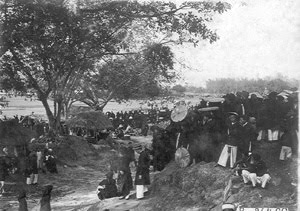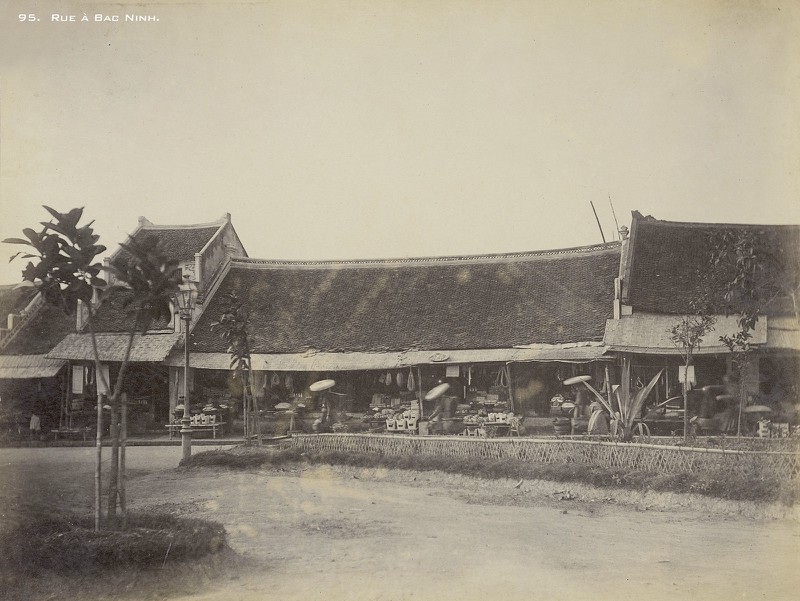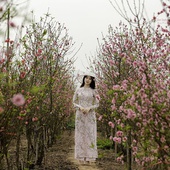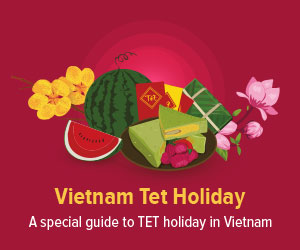History Of Quan Ho Bac Ninh
Quan họ Bắc Ninh folk songs are among the most well-known social customs appearing widely in the provinces of Bac Ninh and Bac Giang.
Quan Ho Bac Ninh folk songs remain one of the most celebrated social customs widely practiced in Bac Ninh and Bac Giang provinces of northern Vietnam. These unique musical traditions serve to strengthen the ties between villages and have a deep-rooted history, embodying a rich and beautiful part of Vietnam's cultural heritage.
Quan Ho – Folk Songs Born of Ancient Tales
Determining the exact origin of the term "Quan Ho" is complex, and it has been interpreted in various ways, reflecting the essence of this distinct element of Vietnamese culture.
 A rare photo capturing the Lim Festival and Quan Ho Singing from the past
A rare photo capturing the Lim Festival and Quan Ho Singing from the past
Some scholars suggest that Quan Ho derives from Royal Court music and is linked to an ancient tale in which a mandarin, while passing through Kinh Bắc (the ancient name for Bac Ninh and Bac Giang provinces), fell in love with the region's folk songs. In this context, "quan" meaning "mandarin" and "họ" meaning "stop," provides a literal interpretation of "Quan Ho." However, this hypothesis overlooks other crucial aspects related to cultural practices, including the forms of organization and the nuances of language and expression.
Another perspective posits that Quan Ho did not originate from Royal Court music but from the religious rituals associated with Linga-Yoni culture. By examining the lyrics and performance settings of these folk songs, some experts argue that "Quan Ho" may be a type of spoonerism derived from "quan hệ," meaning "relationship," signifying the romantic connections between folk singers in the Kinh Bắc area.
According to a report published in “Việt Báo” in 1940, the villages of Lũng Giang and Tam Sơn (now part of Từ Sơn) in Bac Ninh province are considered the birthplaces of Quan Ho. These two villages maintained a long-lasting friendship, leading to the tradition of a singing party on the 13th day of the first lunar month, where ten elders and a significant number of young singers from Lũng Giang would be invited to Tam Sơn. This event evolved into a musical dialogue, featuring alternating performances by a young man and woman from each village, and often lasting all night until dawn.
Historical Development
It was during the Ly dynasty (1009-1225) that "quan ho Bac Ninh" began to flourish and became the most prominent festival lasting up to two weeks. Although the capital was located in Thăng Long (present-day Hanoi), the Ly kings returned to Kinh Bắc each spring to celebrate these vibrant festivals.
 Bac Ninh in the past
Bac Ninh in the past
The largest "Quan Ho" festival, Hoi Lim, typically occurs during the first full moon of the lunar year at Lim hills or the Lim Pagoda park. Pilgrims from across the nation, dressed in their finest attire, gather to admire the beautiful blossoms, meet one another, and engage in spirited performances of "quan họ" songs.
In contemporary times, Quan Ho is not only a social activity among "liền anh" and "liền chị"—the male and female singers—but also symbolizes the connection between the performers and the audience. The folk songs celebrate human emotions and a love for the homeland. With a plethora of melodies documented and transcribed into musical scores, Quan Ho Bac Ninh was recognized as an Intangible Cultural Heritage by UNESCO in 2009, further solidifying its importance in Vietnam's cultural landscape.

11 Horoscopes In The Year Of The Dragon
The dragon year can be a booster-for-all for all other zodiacs.

Vietnam's 5 Most Important Festivals & Travel Tips
Vietnam's cultural richness stands out with a variety of traditional festivals.

Kinh People
Vietnam is known for its cultural diversity with 54 ethnic groups, in which, Kinh or Viet people accounts for nearly 90% of the whole population.






